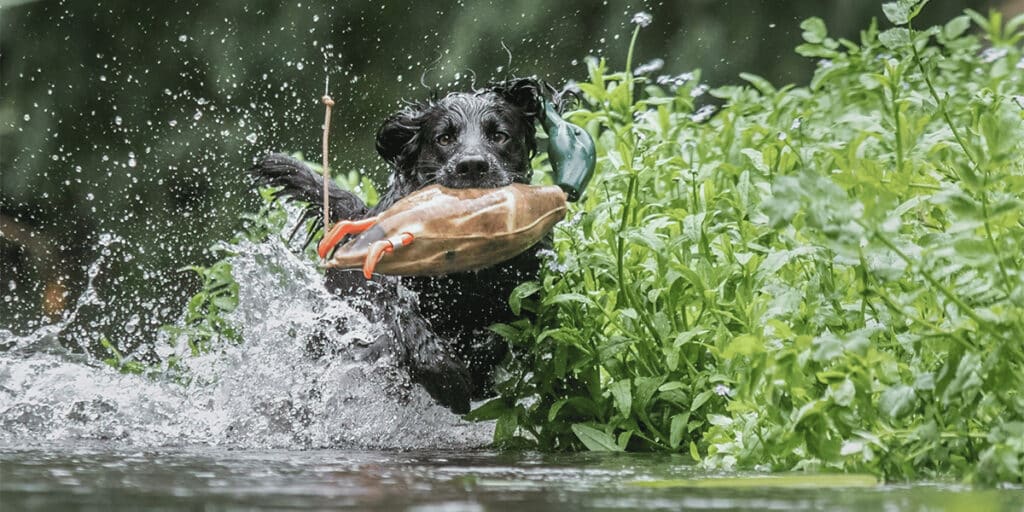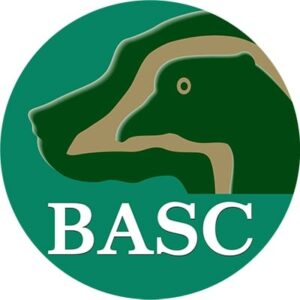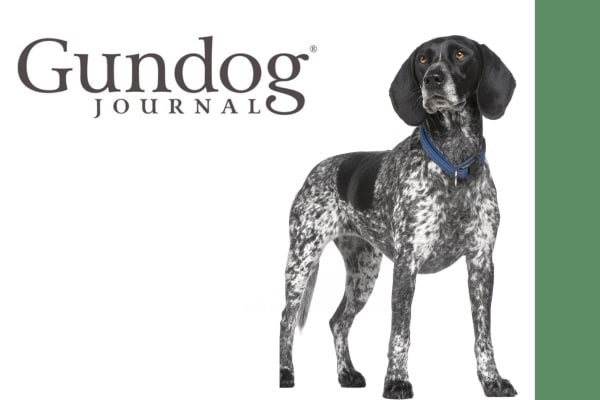
Tweed takes top spot at Crufts 2024
A Labrador retriever from the Scottish highlands was crowned overall winner of BASC’s gamekeeper classes on Gundog Day at Crufts 2024.
Get information on the legal shooting season for mammals and birds in the UK.
Apply for funding for your project or make a donation today
Comprehensive information and advice from our specialist firearms team.
Everything you need to know about shotgun, rifle and airgun ammunition.
Find our up-to-date information, advice and links to government resources.
Everything you need to know on firearms law and licensing.
All the latest news and advice on general licences and how they affect you.


There’s much we can do to keep our dogs injury free and prolong their working careers. Sarah Keith, a qualified veterinary physiotherapist and co-chair of the National Association of Veterinary Physiotherapists, considers the importance of warming up, fitness, and tailored exercise programmes.
Whether you work your dogs professionally or enjoy gundog training as a hobby, their health and wellbeing is of utmost importance. As a veterinary physiotherapist, it is important to me that all dog owners are empowered with the knowledge to keep their dogs fit and injury free for longer. Sadly, diseases such as hip/elbow dysplasia and osteoarthritis are becoming more commonplace among our gundog breeds. This may be because owners are better at recognising the signs. Veterinary diagnostics and treatments are improving all the time, too. These conditions don’t always have to be career-ending, though; if you follow a few simple rules, you may even be able to delay or prevent the onset and progression of diseases such as osteoarthritis.
Warming up prior to exercise is really important; you wouldn’t see Mo Farah setting off for a marathon or Usain Bolt doing a quick 100m if they hadn’t properly warmed up – that’s because it would make them far more prone to injury and they just wouldn’t perform as well.
Muscle is what we call ‘thermodynamic’ – it is much better at stretching when it’s warm. Think about that old bit of Blu Tack sitting in the bottom of the drawer. If you get it out and try to stretch it straight away, it will rip and won’t stick. But if you give it a good roll between your fingers, and work it slowly, adding warmth, it will stretch and stretch without tearing. Muscle is very similar (perhaps don’t test this theory by trying to overstretch…). A proper warm-up exercise routine is crucial to prevent injuries. For our dogs, this takes the form of at least ten minutes of walking – possibly longer in cold weather – and I mean walking! Not trotting or cantering along, actual walking, which is a four-time beat. This ensures even loading of all limbs and makes all of the muscles start working and warming up.

Cooling down is just as important – try to make sure your dog doesn’t suddenly stop moving if they have been working at speed; instead, walk for around ten minutes when you have finished. If you’re out shooting for the day but there’s a lot of stop-start action, try to consider how you can maintain gentle movement in between bursts, so they don’t stiffen up.
Consider a drying coat, too, as it will keep them warm once they’re back in the vehicle and will dry them off quicker. As for stretching, it is always worth engaging the services of your local veterinary physiotherapist who can show you some appropriate exercises that you can do with your dog as part of a cooldown routine.
Fitness training is really important. Athletes don’t get fit just by doing their sport; they train in the gym. The same principle should apply to our dogs.
Think about the variety of terrain your dog has to cope with each time they work. Core conditioning and stability training can be incredibly useful for protecting against injury. Top-level agility dogs train this way now and it is starting to filter down into other areas.
There are fitness classes popping up all over but make sure they are hosted by a fully qualified veterinary physiotherapist, as exercise prescription should be for an individual – after all, every dog is different! Vet physios are trained to understand muscle physiology, tissue repair, injury and disease pathologies and how to safely prescribe exercise. They should assess your dog performing the exercises and tailor a programme which is appropriate for them. It should also be progressive enough to build strength, but not too much that it will make them prone to injury. If your dog already has a diagnosis, they will work alongside your vet to provide support for that condition, which may also include soft tissue work such as massage, and the application of electrophysical agents such as laser therapy.


A Labrador retriever from the Scottish highlands was crowned overall winner of BASC’s gamekeeper classes on Gundog Day at Crufts 2024.

Read about the Braque D’auvergne in the first in our series on gundog breeds, courtesy of Gundog Journal.

A flat coated retriever Barney was crowned overall winner of BASC’s gamekeeper classes on Gundog Day at Crufts 2025.